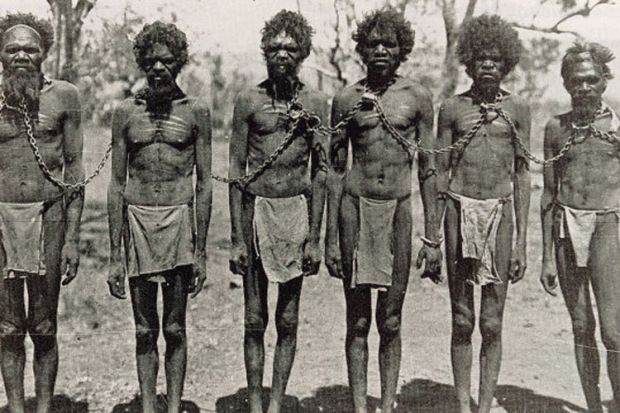We live in an age of apology, Ashraf Rushdy points out in this level-headed and stimulating essay. The Khmer Rouge leader Khieu Samphan apologises for his role in the Cambodian auto-genocide; Bill Clinton apologises to Rwandans for not preventing the genocide of the Tutsis by the Hutus in the 1990s; Tony Blair apologises to the Guildford Four, jailed for a bombing they did not commit.
Over the past two or three decades, the culture of apology has extended further back in time too, with debates flaring up over whether countries such as the UK, France and the US should apologise for slavery, whether Japan should apologise for the atrocities its troops committed during the Second World War, or whether the Pope should apologise for the Crusades. For more than a decade Australia has had a National Sorry Day, where people sign “Sorry Books” to record their remorse for the nation’s treatment of Native Australians. How far back do you go? In 1965 Pope Paul VI apologised to the Orthodox Patriarch of Constantinople for excommunicating his predecessor in 1054 (the Patriarch also apologised for the same act in reverse). As a Welshman, should I demand an apology from the English for driving my ancestors out of their homes in the wake of the fall of the Roman Empire and forcing us to live among barren mountains instead of luxuriating in fertile plains?
Should we feel responsible for our grandfathers’ acts, still less for those of even more remote ancestors? In 1994, when Pope John Paul II urged his Church to ask forgiveness for sins it had committed over the past 2,000 years, in preparation for the new millennium, Cardinal Giacomo Biffi responded robustly that “we are no longer responsible…As regards the sins of history, would it not be better for all of us to wait for the Last Judgment?”
But historical apologies, which Rushdy usefully distinguishes from contemporary or near-contemporary political apologies, perform a useful symbolic function in underlining the intention of a nation, a state or a particular group in society to do things differently in future: the Catholic Church’s intention to have better relations with other branches of Christianity, or white Australians’ intention to try to improve the situation of the Aborigines. Whether there should be financial reparations for slavery and other acts of gross injustice is a different matter, which Rushdy does not discuss, although it could be argued that it follows on logically from the act of apology. And he perhaps puts too much faith in the healing power of confessions of guilt and remorse.
True, as he says, public rituals of atonement should not be a means of drawing a line under the past and forgetting about it; on the contrary, they are a necessary precondition of beginning the search for truth. Whether the truth will assuage victims’ anger is doubtful, however; for what confession of guilt and remorse could ever, for instance, atone for the Germans’ extermination of millions of Jews? This book, by usefully identifying the culture of guilt, provides an essential starting point for debating these difficult issues, but it is by no means the final word.
Richard J. Evans is Regius professor emeritus of history, University of Cambridge.
A Guilted Age: Apologies for the Past
By Ashraf H. A. Rushdy
Temple University Press, 244pp, £62.00 and £18.99
ISBN 9781439913215, 3222 and 3239 (e-book)
Published 1 October 2015
POSTSCRIPT:
Print headline: When to say the hardest word
Register to continue
Why register?
- Registration is free and only takes a moment
- Once registered, you can read 3 articles a month
- Sign up for our newsletter
Subscribe
Or subscribe for unlimited access to:
- Unlimited access to news, views, insights & reviews
- Digital editions
- Digital access to THE’s university and college rankings analysis
Already registered or a current subscriber?
